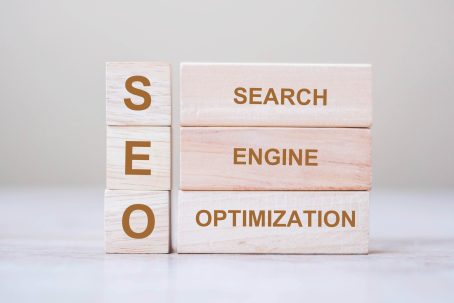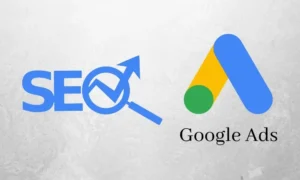Search Engines

Canada has a vast online market on different argoments. So, you need to be really better than the others to survive on this competetive market. Follow the article on Ramikar to get to know us and how SEO works.
What Are Webpages?
Webpages are the building blocks of websites. They are the individual pages that make up a website and can be accessed through a web browser. There are several types of webpages that serve different purposes and cater to different audiences. In this article, we will discuss the essential types of webpages that every website should have.
1. Home Page
The home page is the most important webpage on a website. It is the first page that visitors see when they land on your site, and it sets the tone for the rest of your website. The home page should provide an overview of what your website is about and what visitors can expect to find on it.
2. About Us Page
The about us page is where you tell your visitors who you are, what you do, and why you do it. This page should provide information about your company or organization, its history, mission statement, and values.
3. Contact Us Page
The contact us page is where visitors can find information on how to get in touch with you. This page should include a contact form or email address, phone number, physical address (if applicable), and social media links.
4. Products/Services Page
If you sell products or services on your website, then this page is essential. It should provide detailed information about each product or service you offer, including pricing, features, benefits, and any other relevant information.
5. Blog Page
A blog page is where you can share news, updates, insights, opinions, and other content related to your industry or niche. A blog can help establish your authority in your field and attract more traffic to your site.

6. Testimonials Page
Testimonials are social proof that can help build trust with potential customers or clients. A testimonials page should feature quotes from satisfied customers or clients along with their name and photo (if possible).
7. FAQ Page
An FAQ (frequently asked questions) page is where you can answer common questions that visitors may have about your products, services, or company. This page can help reduce the number of support requests you receive and improve the user experience.
8. Privacy Policy Page
A privacy policy page is where you explain how you collect, use, and protect personal information that visitors provide to your website. This page is essential for compliance with data protection laws and can help build trust with visitors.
9. Terms and Conditions Page
A terms and conditions page is where you outline the rules and regulations that govern the use of your website. This page should include information on copyright, trademarks, disclaimers, warranties, liability limitations, and other legal matters.
Essential Types of Webpages
These are the essential types of webpages that every website should have. Each of these pages serves a specific purpose and helps improve the user experience on your site. By including these pages on your website, you can provide visitors with the information they need to make informed decisions about your products or services while building trust and credibility with them.
What Is SEO?
Search Engine Optimization (SEO) is a process of optimizing a website to rank higher in search engine results pages (SERPs). It involves various techniques and strategies that help search engines understand the content and relevance of a website. SEO is a long-term process that requires patience, consistency, and dedication. The time it takes to see results from SEO can vary depending on several factors.
Factors Affecting SEO Timeline
There are different factors that can effect on SEO Timeline such as:
1. Competition:
The level of competition in your industry or niche can affect the time it takes to see results from SEO. If you are in a highly competitive industry, it may take longer to rank higher in SERPs than if you were in a less competitive niche.
2. Website Age:
The age of your website can also affect the timeline for SEO results. New websites may take longer to rank higher in SERPs than older websites because they have less authority and backlinks.
3. Content Quality:
The quality of your website’s content is crucial for SEO success. If your content is high-quality, informative, and relevant, it will attract more traffic and backlinks, which can help improve your rankings faster.
4. Technical Issues:
Technical issues such as broken links, slow loading speed, or poor mobile responsiveness can negatively impact your website’s ranking. Fixing these issues can improve your rankings faster.
5. Backlink Profile:
Backlinks are an essential factor for SEO success. If you have high-quality backlinks from authoritative websites, it can help improve your rankings faster.
How Long Does SEO Take?
SEO is not an overnight process; it takes time to see results. Generally, it takes three to six months to start seeing significant improvements in rankings and traffic after implementing an effective SEO However, this timeline can vary depending on the factors mentioned above.
Which Websites Need More Effort?
For new websites or those with little authority or backlinks, it may take longer to see significant improvements in rankings and traffic. In some cases, it may take up to a year or more to see significant results.
SEO Is An Ongoing Process
It’s important to note that SEO is an ongoing process. It’s not something you can do once and forget about it. You need to continually optimize your website, create high-quality content, and build backlinks to maintain and improve your rankings.
How Does SEO Work?
SEO is a long-term process that requires patience, consistency, and dedication. The time it takes to see results from SEO can vary depending on several factors such as competition, website age, content quality, technical issues, and backlink profile. Generally, it takes three to six months to start seeing significant improvements in rankings and traffic after implementing an effective SEO strategy. However, this timeline can vary depending on the factors mentioned above. It’s important to remember that SEO is an ongoing process that requires continuous optimization and improvement.
What Are Search Engines?
Search engines are an essential tool for finding information on the internet. They allow users to enter a query or keyword and receive a list of relevant websites, articles, images, videos, and other online content. But how do search engines work? In this article, we will explore the basic principles behind search engine technology.

How Does a Search Engine Work?
The first step in understanding how search engines work is to recognize that they are essentially giant databases of information. Search engines use complex algorithms to crawl and index the vast amount of content available on the internet. This process involves sending out automated programs called spiders or crawlers that follow links from one webpage to another, collecting data along the way.
What Are the Important Parts of SEO for Search Engines?
Once a search engine has crawled a webpage, it analyzes the content and metadata to determine what the page is about. This includes looking at factors such as keywords, title tags, meta descriptions, and header tags. The search engine then stores this information in its index, which is essentially a massive database of all the web pages it has crawled.
Search Engines Take The Users’ Intent Under Consideration
When a user enters a query into a search engine, the search engine uses its algorithm to match that query with relevant pages in its index. The algorithm takes into account various factors such as keyword density, page authority (based on backlinks), relevance to user intent (based on user behavior), and other factors.
The Most Relevent Results Appear at the Top
The search engine then returns a list of results ranked by relevance based on these factors. The most relevant results appear at the top of the page while less relevant results appear further down.
You Should Care About the Quality
One important thing to note is that not all web pages are created equal in terms of their visibility in search results. Pages with high-quality content and strong backlinks from other reputable sites tend to rank higher than those with poor quality content or no backlinks.
Improve Your Visibility
To improve their visibility in search results, website owners can use various techniques known as search engine optimization (SEO). SEO involves optimizing various elements of a website such as its content, structure, and backlinks to make it more appealing to search engines.
Different Algorithms
Search engines are constantly evolving, and their algorithms are becoming more sophisticated every day. For example, Google’s algorithm now uses machine learning to better understand user intent and provide more relevant results. This means that SEO techniques that worked in the past may not be as effective today.
You Need to Know About the Search Engines
Search engines are complex systems that use algorithms to crawl, index, and rank web pages based on various factors such as relevance, authority, and user intent. By understanding how search engines work, website owners can optimize their content and improve their visibility in search results.
How to Contact Us?
Ramikar has an expert team of SEO specialists. You may really make a big difference in your business working with them. We actually know every single step that can improve your business so contact us as soon as possible.
Recent Articles:

Video Marketing Canada: Best Strategies for 2025

Photography Services Canada: For Web & Social Media Use

Logo Design Canada: Create a Logo That Truly Stands Out
Let us help !
Related Posts
Comments






